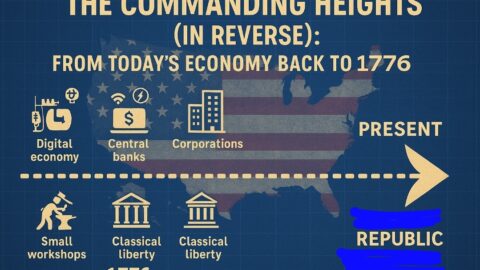The quote “The things you own end up owning you” from Chuck Palahniuk’s Fight Club serves as a critique of consumerism and materialism. It suggests that rather than people controlling their possessions, their possessions often control them. This insight ties closely to the concept of idolatry—placing undue importance on material things, which can overshadow spiritual, emotional, or relational values. Here’s an exploration of how this dynamic unfolds and its implications:
The Burden of Ownership
- Physical and Emotional Costs:
Owning material things often comes with ongoing responsibilities—maintenance, insurance, repairs, and upgrades—which can consume time, money, and mental energy. For example:- A larger house demands higher upkeep.
- A luxury car requires expensive repairs.
- Expensive gadgets need regular upgrades.
Over time, these possessions dictate how you allocate resources, effectively “owning” you.
- Debt and Financial Slavery:
Many people acquire possessions through loans or credit, creating financial obligations that bind them to jobs or lifestyles they might otherwise escape.
Connection to Idolatry
- Worship of Material Things:
Just as idolatry involves prioritizing false gods over true worship, materialism elevates possessions to a place of ultimate importance. This shift distorts priorities, often at the expense of relationships, spirituality, and well-being. - False Sense of Fulfillment:
Like idolatry, material possessions promise happiness and identity but fail to deliver lasting satisfaction. People might buy a new car, house, or gadget hoping it will make them happy, only to find that the satisfaction is fleeting.
How Materialism Owns Us
- Identity and Social Status:
Many people define their worth by what they own—houses, cars, clothes, or technology—leading to an endless cycle of acquiring more to maintain or improve their social image. - Clutter and Overwhelm:
An abundance of possessions can create physical and mental clutter, leaving people overwhelmed by their belongings instead of freed by them. - Fear of Loss:
People may become so attached to their possessions that the thought of losing them creates anxiety or defensiveness, further tying them to their material wealth.
Breaking Free: Parallels to Idolatry and Simplicity
- Spiritual Perspective:
Many religious and philosophical traditions, including Christianity, warn against placing material wealth above spiritual growth. For example:- “Do not store up for yourselves treasures on earth, where moths and vermin destroy, and where thieves break in and steal” (Matthew 6:19).
This encourages a focus on eternal values over temporary possessions.
- “Do not store up for yourselves treasures on earth, where moths and vermin destroy, and where thieves break in and steal” (Matthew 6:19).
- Minimalism:
Modern movements like minimalism echo the same idea, advocating for fewer possessions and a life focused on meaning, relationships, and experiences rather than objects. - Contentment and Gratitude:
Countering the “ownership trap” involves cultivating gratitude for what you have and contentment with less, freeing yourself from the compulsion to constantly acquire.
Practical Steps to Avoid Being Owned by Possessions
- Evaluate Needs vs. Wants:
Before acquiring something new, ask if it truly serves a purpose or simply satisfies a fleeting desire. - Declutter Regularly:
Letting go of unnecessary possessions reduces the physical and emotional burden of ownership. - Prioritize Experiences Over Things:
Invest in relationships, personal growth, and memorable experiences, which often bring more lasting joy than material goods. - Adopt a Stewardship Mindset:
See possessions as tools to serve your purpose, not as extensions of your identity or worth.
Broader Cultural Implications
- Consumerism and Environmental Impact:
Society’s obsession with ownership drives overproduction, waste, and environmental harm, reinforcing the negative cycle of “worshipping” material wealth. - Cultural Shifts:
Movements toward sustainability and simplicity challenge consumer-driven norms and promote a healthier balance between ownership and freedom.
Conclusion
Palahniuk’s quote points to the spiritual and psychological traps of materialism. When possessions begin to define us, they control our time, energy, and values, leading to a life that can feel hollow and disconnected from deeper meaning. Drawing parallels to idolatry reminds us to place higher value on what truly matters—faith, relationships, growth, and purpose—and to resist the false promises of material wealth. By embracing simplicity, gratitude, and stewardship, we can reclaim freedom and live in alignment with our deeper values.







